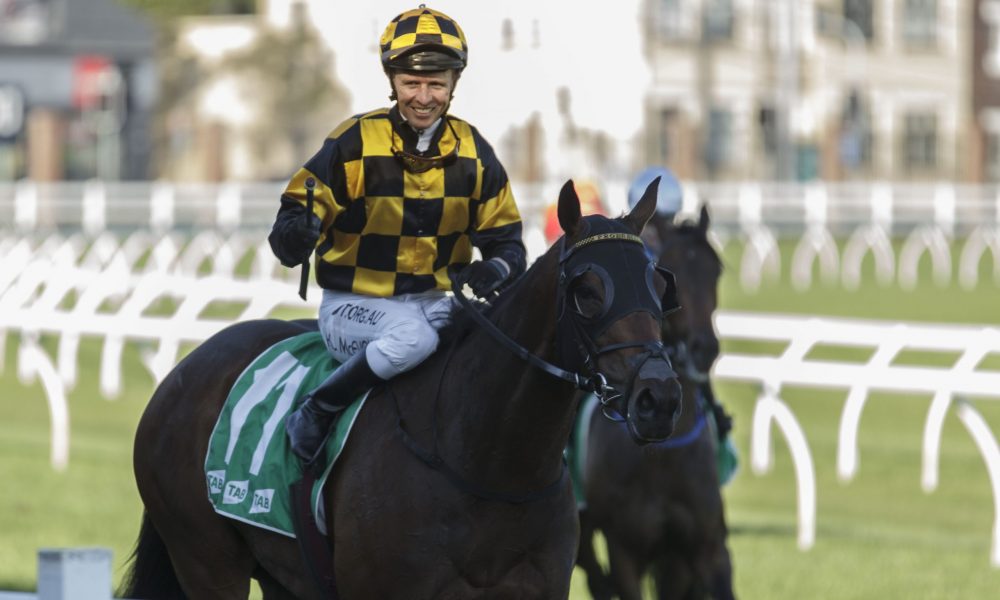Racing NSW inject a further $20 million prize-money

New metropolitan Midway races and boost to Epsom Handicap part of increases across the board
Racing NSW yesterday announced increases in annual prize–money to the tune of $20 million, in a show of further investment to the racing industry from the state’s governing body.
Among the changes is the creation of a new tier of race staged on metropolitan Saturday racecards, to be named Midway races, while prize–money levels for several Group races, including the Epsom Handicap (Gr 1, 1600m), will see significant increases.
The Midway Races will feature as part of Saturday metropolitan racecards, taking the number of races on a standard card to ten. They will be open exclusively to horses from small to mid-sized NSW metropolitan and provincial stables, with races carrying a total purse of $100,000, and eligibility determined on a point-scoring system with trainers assessed on the number and level of race winners trained by them in the previous year.
Increases to prize-money levels will be implemented across the spectrum of racing in New South Wales, with prize–money for Saturday metropolitan races increased by $5,000 to $130,000, while the metropolitan TAB Highway races for country-trained horses will be bolstered to $100,000, from its current level of $75,000.
Country racing will be the biggest recipient of the increases, with a total investment of $5,200,000, as minimum prize–money for TAB country races will see increases of $2,000, to $24,000, while 20 country race meetings will be elevated to Showcase status, with races carrying prize–money of $30,000.
Prize–money on the country racing circuit has increased $58 million since 2012, with the total on offer now standing at more than $91 million. The changes will take effect from July 1, 2021.
In announcing the new changes, Racing NSW chairman, Russell Balding, said: “We are pleased to be able to announce this significant increase in prize–money which will benefit country races as well as the Saturday metropolitan race meeting each week.
“These increases broaden the spread of prize–money and further improve the dividends back to our owners and participants. We also want to make sure that our traditional spring feature races continue to attract quality fields and maintain their prize-money relativity.”
Racing NSW CEO, Peter V’landy’s, said the introduction of Midway races to metropolitan racedays will offer smaller trainers the opportunity to bolster their stables.
“The idea actually came from the trainers, it was Richard Freedman who put this to me some years ago,” said V’landys.
“The country have their specialized races, the Highway race, but provincial and those metropolitan trainers that are in the smaller or mid–stream, they don’t get that opportunity every week. So now they have their opportunity to procure owners, because there’ll be a $100,000 race each week for those stables.
“The objective of the Midway Races is to build the competitiveness of small to mid-sized stables, and further develop the field sizes and quality for metropolitan racing.”
The time-honoured Epsom Handicap, won most recently by Probabeel (Savabeel) last year and which also includes Winx (Street Cry), Desert War (Desert King) and Super Impose (Imposing) on its roll of honour, will have prize–money boosted by $500,000, to $1.5 million, among several upgrades to the Everest carnival in the spring.
In addition, Racing NSW announced a bonus prize of $1 million for any horse that wins the Craven Plate (Group 3, 2000m) and Rosehill Gold Cup (2000m) in the same year, with each race seeing an increase of $250,000 to its prize fund, taking both to a purse of $750,000.
The Villiers Stakes (Gr 2, 1600m), inaugurated in 1892, will see it’s prize–money treble, receiving an increase of $500,000, while the Flight Stakes (Gr 1, 1600m), will receive an increase $250,000, a move that V’landys says will bring prize–money for these traditional races in line with with newly-created spectacles possessing lucrative prize pots.
“We have to have relativity on our prize–money and we need to make sure that our traditional and time-honoured races don’t lose out,” V’landys said.
“I think we’ve just rectified this to bring (prize–money levels) back and relative to these new races.”
The newly-announced increases are a far cry from at this stage last year, when racing bodies across the country were forced into implementing reductions in prize-money levels due to the outbreak of Covid-19 and V’landys said that Racing NSW had emerged from the pandemic in a strong position, allowing for these prize-money increases to take place.
“We were in unknown territory last year when the pandemic hit, we didn’t know how long it was going to last, and what effect it would have on our revenues, so we had to take a conservative approach,” V’landys said. “We restructured prize–money until we saw what the pandemic was going to do to our revenue streams.
“It certainly didn’t have as big an effect as we thought. It had an effect on the race clubs, but the betting turnover increased dramatically over that period. So we were able to generate more revenue than expected and, like any organisation, we turn those revenues back to our participants.
“If we were a public company, our dividends are prize–money and they can all compete to get that prize–money.”


